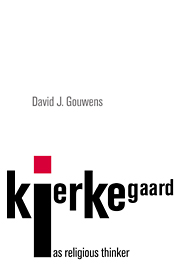Book contents
- Frontmatter
- Contents
- Acknowledgements
- List of abbreviations
- Introduction
- 1 Diseases of reflection
- 2 Anthropological reflection
- 3 Becoming religious: upbuilding before God
- 4 Becoming Christian I: responding to Christ in faith
- 5 Becoming Christian II: suffering and following Christ in hope
- 6 Becoming Christian III: love and imitating Christ in works
- 7 Witness in faith, hope, and love
- Conclusion
- Bibliography
- Index
3 - Becoming religious: upbuilding before God
Published online by Cambridge University Press: 14 October 2009
- Frontmatter
- Contents
- Acknowledgements
- List of abbreviations
- Introduction
- 1 Diseases of reflection
- 2 Anthropological reflection
- 3 Becoming religious: upbuilding before God
- 4 Becoming Christian I: responding to Christ in faith
- 5 Becoming Christian II: suffering and following Christ in hope
- 6 Becoming Christian III: love and imitating Christ in works
- 7 Witness in faith, hope, and love
- Conclusion
- Bibliography
- Index
Summary
Kierkegaard sees “becoming religious” in terms of “upbuilding” and “forming” the individual. In this chapter we need to examine more closely Kierkegaard's vision of becoming religious as the shaping of the heart, the development of longterm personal emotions and particularly virtues that characterize both ethical and religious existence. And we will see how he also alters that virtue tradition in considering the dynamics of religious existence before God. Finally, at the end of this chapter, we will briefly situate his understanding of religion in relation to others current in his time.
Ethics and religion are related closely for Kierkegaard. Of course, the ethical and religious are distinct stages in much of Kierkegaard's published and unpublished writings, especially in such works as Stages on Life's Way, Fear and Trembling, and Postscript. He makes clear that ethics, while inherently religious, is not the whole story of religion, and, conversely, religion is never simply the ethical; there are crucial differences between ethics, religion, and Christianity. Nonetheless, ethics and religion can also be seen together, over against, in contrast to, the disorder of aesthetic life. As Alastair McKinnon has written, the great divide, the decisive fork in the road, the great either/or for Kierkegaard is between the aesthetic and the Christian, with the ethical and religious subsumed under the Christian. This is especially so in light of his strategic purpose to lead persons from an aesthetic approach to life (including aesthetic intellectualism) to decisive Christian categories. Ethics is the entry-point for religious and for Christian concern, and each of the religious spheres builds upon the ethical.
- Type
- Chapter
- Information
- Kierkegaard as Religious Thinker , pp. 93 - 121Publisher: Cambridge University PressPrint publication year: 1996



